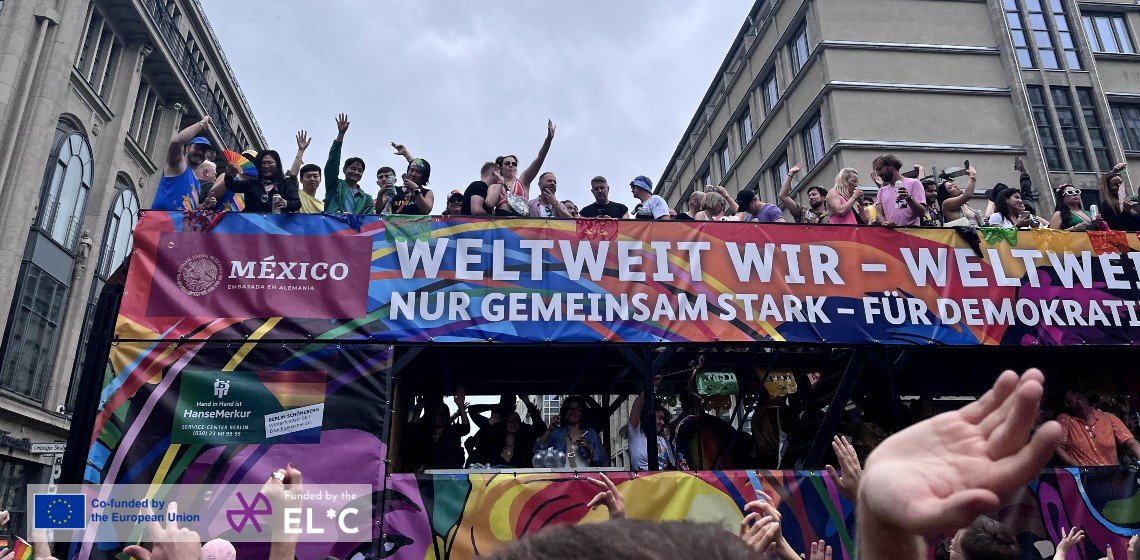Christopher Street Day (CSD Berlin) or Berlin Pride, one of the largest and most colourful LGBTQIA+ events in Europe was held on the 27th of July.
Previously I only spent a day and a half in Berlin for the sake of a Modest Mouse concert. I didn’t have the chance to do any sightseeing then, so I’ve made up for it now, but the main purpose of my trip was the parade.
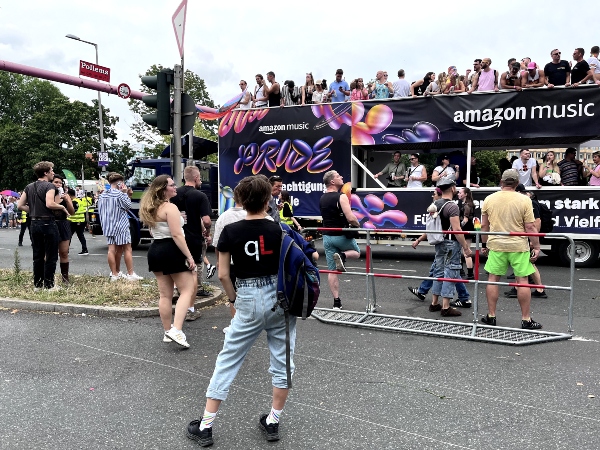
I was curious about the Pride celebrations in a city that used to be a bastion of Nazism and then was dismembered in revenge after the Second World War, and had to exist like that, fragmented, during the years of the Cold War. I was interested to see how Berlin reflects what is going on in world politics. We are on the verge of Trump’s second presidency, and right-wing parties are gaining strength all around the world, made all the more evident by the European elections: in France, Marine Le Pen’s National Rally has struck a blow against Macron’s centrist policies, and in Germany the far-right AfD (Alternative for Germany) has been given a mandate (a party which, incidentally, has moved into the same faction as the Our Homeland Movement). Unfortunately, this kind of shift to the right means that queer people are increasingly under political attack.
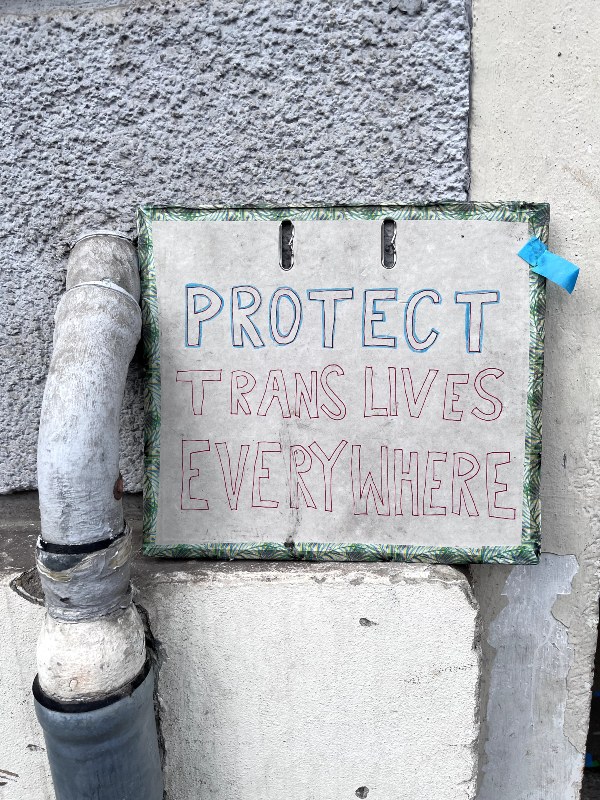
Berlin Pride is not only a celebration of diversity and acceptance, but also a powerful political statement for equal rights and social justice. Unfortunately, it has come under criticism, with some radical activists arguing that its original political edge has been lost, that it has become a mainstream festival and that it would be better if the demonstration for rights was once again the main focus. The parade itself is a festival, but during Pride Month, which has been held for three years now, serious issues are also brought up. Important social issues such as anti-discrimination laws, transgender rights and the fight against HIV/AIDS are addressed. This year, the situation of older queer people, sports – including football, the Islamic religion were discussed, but so was the queer network in Germany. Important topics such as trans, intersexual and non-binary issues from a feminist perspective were also explored.
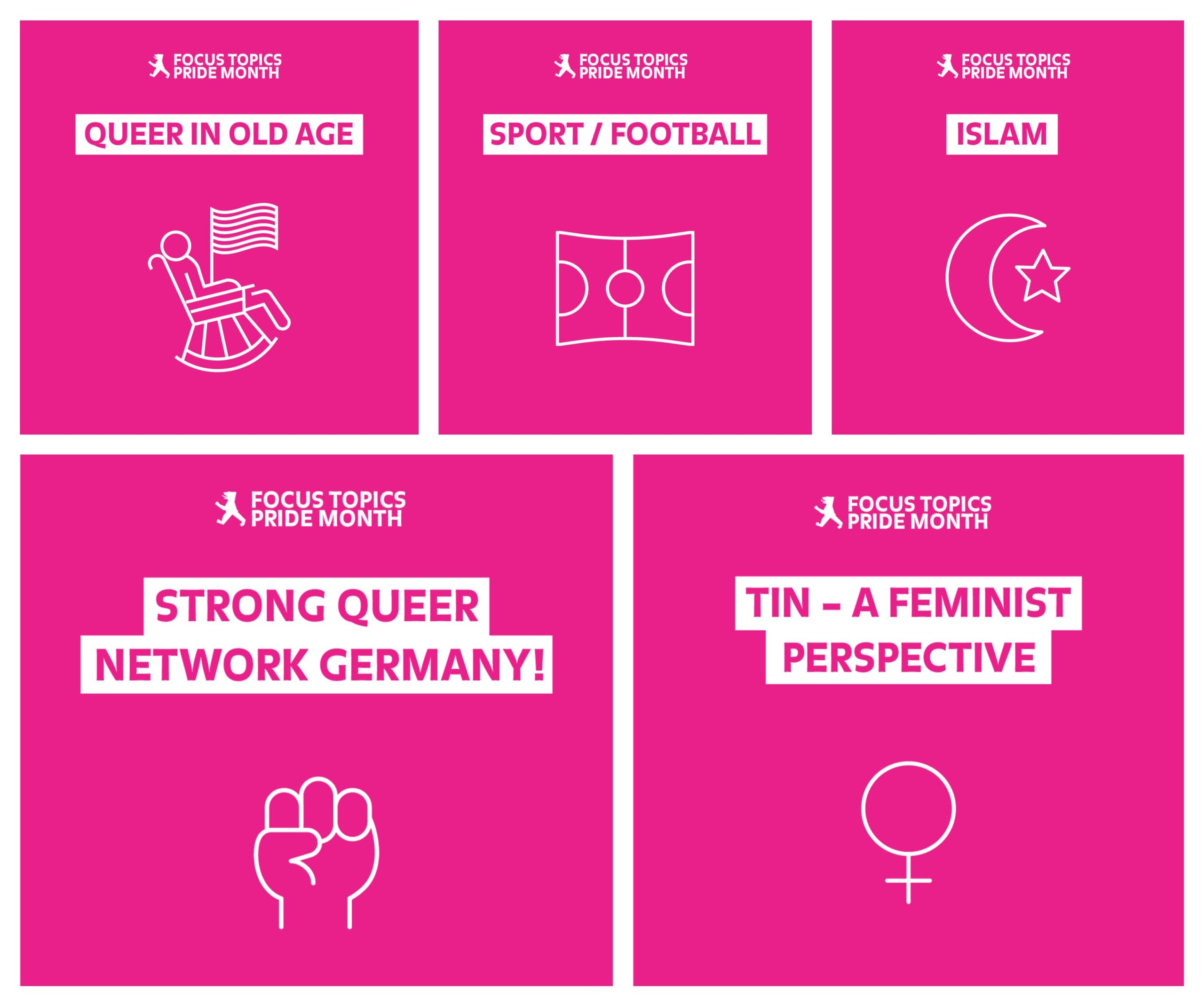
These problems are not unknown in this country either, but there is a striking difference: we have to fight, first and foremost, to stop gay people being conflated with paedophiles.
The whole city seemed to be preparing for Pride, and it was not seen as a “problem” of one group, it was not seen as everything getting closed down because of ‘them queers’. In fact, they had already dressed up anything they could in rainbows: logos, shop windows, every public building had something added to its facade, and many institutions had put up rainbow flags.
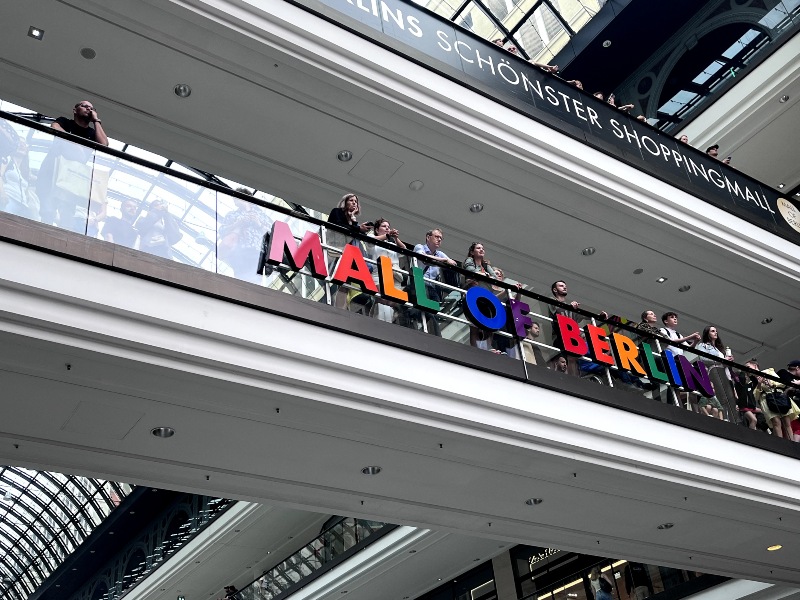
People were already wearing their colourful badges, socks and bags days before, because it’s Pride on Saturday! I couldn’t wait to see how the march of a giga-conscious, politically active, visible queer community would go!
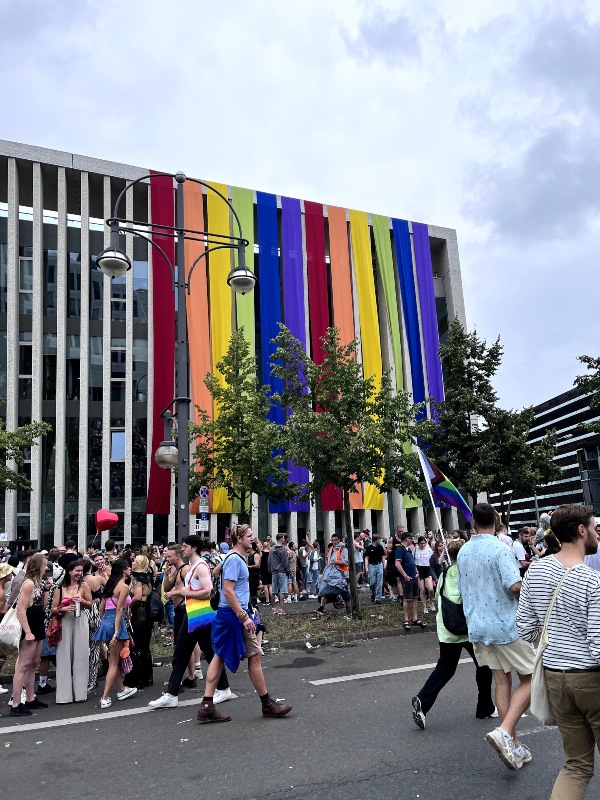
It was rainy, but no one but us was worried about the event being cancelled. We didn’t go to the designated meeting point, having decided to join a few streets down the line.
We came in from one of the side streets, we watched the first trucks go by from there. Next to us, people were popping champagne all unhurried, but we were already getting antsy as the fourth truck had passed, wondering if we should join in already. We didn’t know at the time that there were 75 trucks in total.

By trucks I mean two-storey hop-on, hop-off bus-like monstrosities registered for corporation or organisation: besides Sony and IKEA, there was also the Evangelische Kirche in Berlin (Evangelical Church of Berlin). Each truck prominently displayed the motto of this year’s Pride: ‘Together we take a stand! Democracy needs Diversity!’ We joined the march and everywhere we went there was some good techno, retro or pop hit blaring from the speakers. They were throwing condoms to the crowd with Guetta’s Satisfaction as background music because only one thing is more important than rights: safe sex.
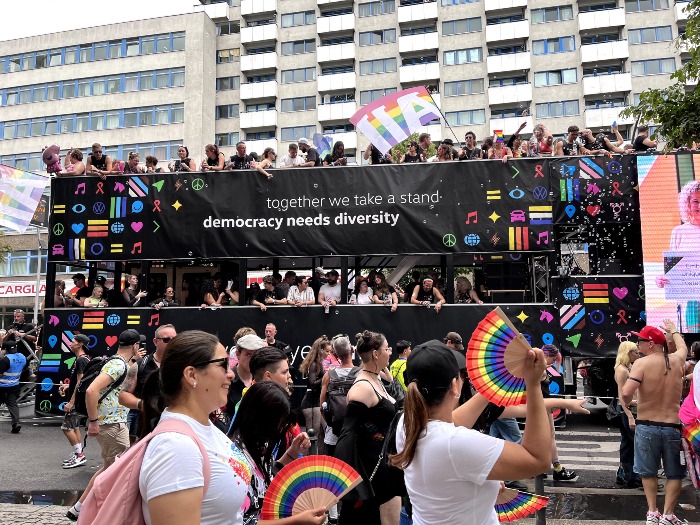
What was familiar was the critical toilet situation. This is simply impossible to solve, but the city reacted well: toilets were available in shops for €1, but in many pubs and restaurants even for free. In the latter, however, there were long queues. The first time we went to the museum (Neue Nationalgalerie) to use the toilets, which was an excellent choice for several reasons. On the one hand, we didn’t have to wait long, and on the other hand, in our experience, nobody looked at us strangely, the cleaning lady kindly recommended that we just go use the disabled stall when it’s empty.
Slowly we started to get into the rhythm of Pride. Turns out it’s perfectly normal to sit down during the parade to chat with friends, have a picnic or to get a margarita at one of the pop-up cocktail stands. From the size of the crowd, it looked like most of the city had joined in. It was impossible to be left behind because the procession just didn’t end.
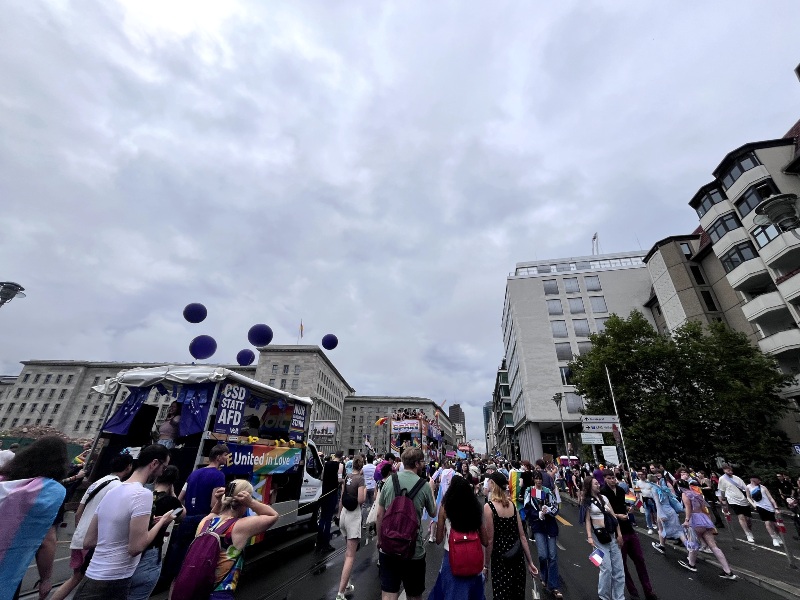
The parade ended at the Victory Column, and from there it was like walking into the Rainbow Party of Budapest Park. You can roughly imagine it as a huge party from Oktogon all the way to Heroes’ Square. We were simply amazed as we saw the huge stage in front of the Brandenburg Gate. The veterans – who probably didn’t walk the whole distance or stopped a lot to rest – were able to party their hearts out.
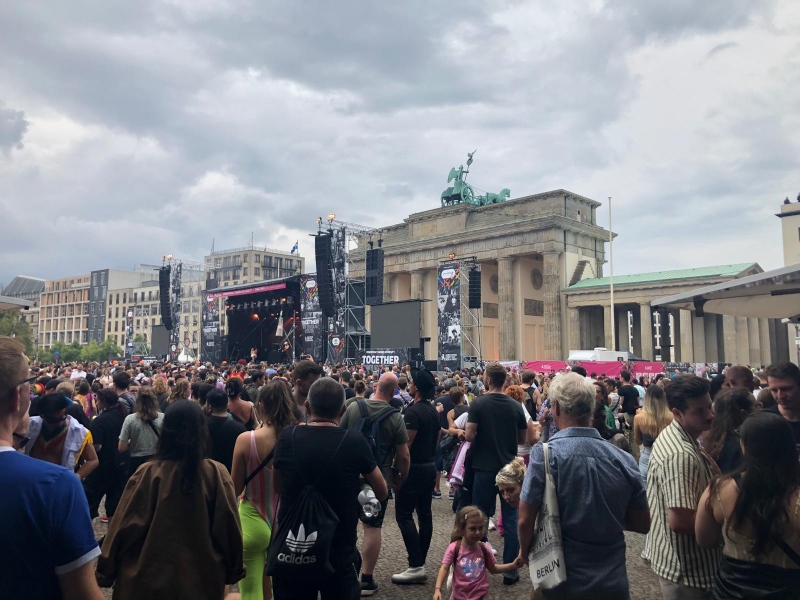
Berlin Pride occupies an important place in a city where people have been able to confront and come to terms with their history. It was incredibly liberating, I was happy to experience how they can party in such a free city.
This trip was funded by the EuroCentralAsian Lesbian* Community and co-funded by the European Union. The content of this account is the sole responsibility of qLit.hu, the implementer of the project, and does not necessarily reflect the views of the EuroCentralAsian Lesbian* Community or the European Union.
Translated by Zsófia Ziaja

